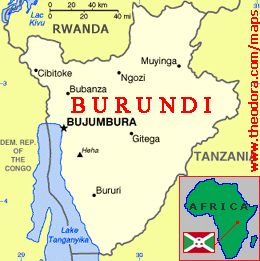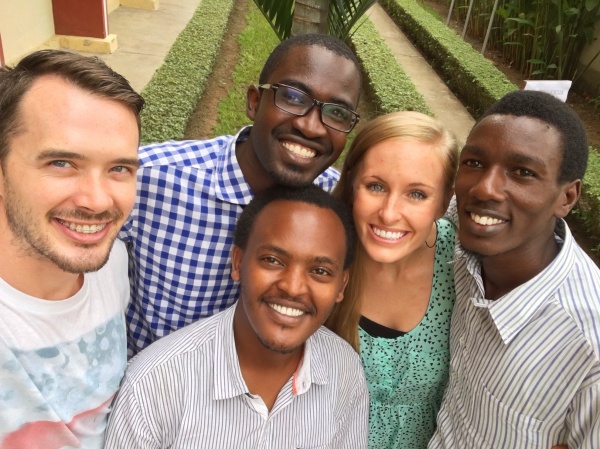By Kate Vanskike
“I’m trying to break down some of my own notions of superiority. It’s a process.”
That’s Ladd Serwat, who’s graduating from Gonzaga in 2017 with a major in international relations and a minor in French before heading to London for graduate studies in African development.
He originally set out on a mission to research poverty, a realm he found far more complex than originally thought. “It was humbling to realize I needed to narrow my focus,” he says.
At 18, fresh out of high school, Serwat landed an internship with a nonprofit organization called the Hope Project, which helped to provide housing and education to communities in African countries. Most of his role was raising awareness and funding in the U.S., along with some occasional travel to East Africa.
While taking classes at North Idaho College, Serwat met his wife Carley and two years after they married (2010), they moved to Burundi to learn the language and culture.
“We fell in love with the country,” Serwat says. And with the people: People who had suffered acts of violence, often due to land disputes even within families; people who were forced to leave the country or were internally displaced.
Serwat’s professional experience with the Hope Project and his personal relationships revealed some serious realities: crafting effective, durable and humane responses to forced migration, land security and ethnic conflict would be incredibly complex, and if he were going to play a role in that work, he needed a concentrated time of academic research and preparation.
In 2014, that epiphany brought him home to North Idaho, and to Gonzaga.
In political science and international relations courses, Serwat explored answers from an academic perspective: the structural challenges to poverty, the criticism of relief aid efforts, the empowerment of local leaders to create solutions, working with the U.N. on state-centric issues, finding NGOs that could be effective despite their limited resources and political voice.
Gonzaga doesn’t have extensive coursework dedicated to his passion for East Africa and its Great Lakes Region. But Serwat found flexibility with faculty members who supported him contextualizing the material and focusing research projects on Burundi specifically and the Great Lakes Region in general. He arranged independent study courses in the sociology of development and global perspectives to focus on various theoretical perspectives concerning development. He credits professors Stacy Taninchev and Sean Swan for giving him the freedom to do that research and prepare for grad school.
“It’s been an eight-year commitment to seeing change happen in Burundi both in practice and through academic research,” Serwat wrote in a graduate school admissions letter. “I am not giving up, losing focus, or willing to stop fighting on behalf of the poor, oppressed and vulnerable in this frequently forgotten country.”
 About Burundi
About Burundi
- Genocides took place in the 1970s and ‘90s
- More political unrest ensued in 2015
- Its land has been deforested and eroded
- 80 percent of the population lives in poverty
- People suffer from lack of education and the proliferation of HIV/AIDS
The Trust Factor
How does Serwat deal with the despair of people who are displaced – the realities he has seen face to face and the difficulties he has discovered in his studies?
“It starts with having compassion and knowing that I can’t possibly understand it all,” he says. “I have to trust Jesus with some of those complexities and try to live out what he has called me to do.”
That calling does not mean merely existing here while his head and heart are in Africa. The Serwats challenge themselves to be involved in their local community in Hayden, Idaho, while they’re here, serving women who are coming out of prison and dealing with substance abuse.
“Serving well locally speaks to how to serve well globally,” he says. “Why would we do something different globally than what we do locally? We are trying to build relationships, make connections and empower people.”
When Helping Hurts
Interested in joining efforts to help global communities impacted by poverty and conflict? Serwat’s advice:
- Be willing to put in the time to read the history and know the culture of the place you’re visiting before you leave.
- Learn the language if possible.
- Read about the ways well-meaning organizations and people sometimes diminish the work – “When Helping Hurts” is a great book.
- Remember not to put too much emphasis on yourself.
